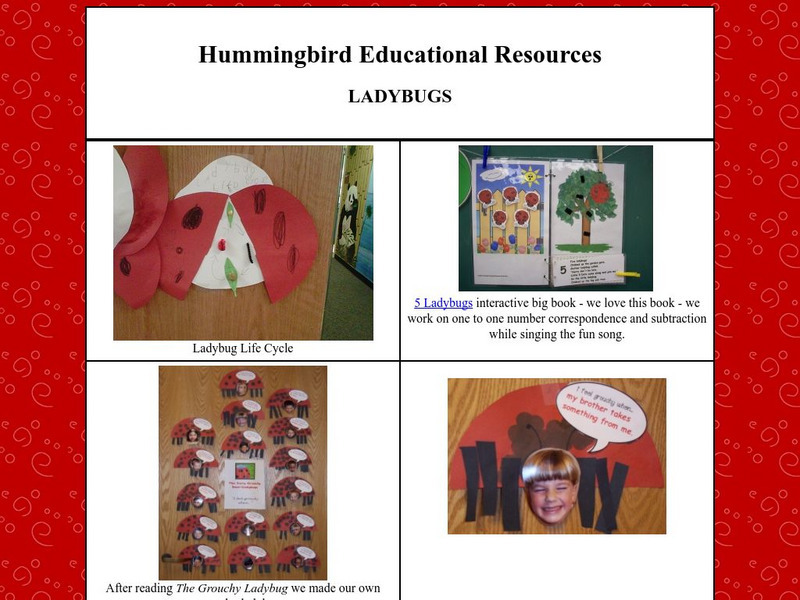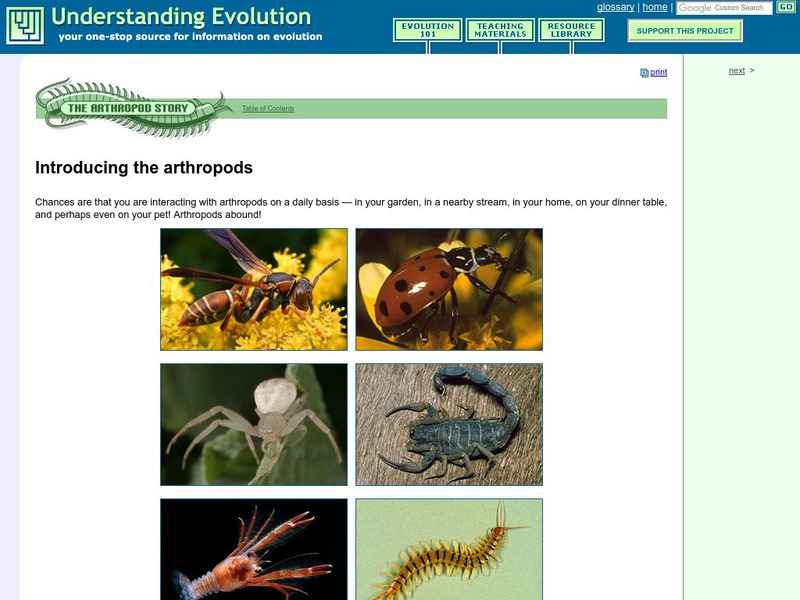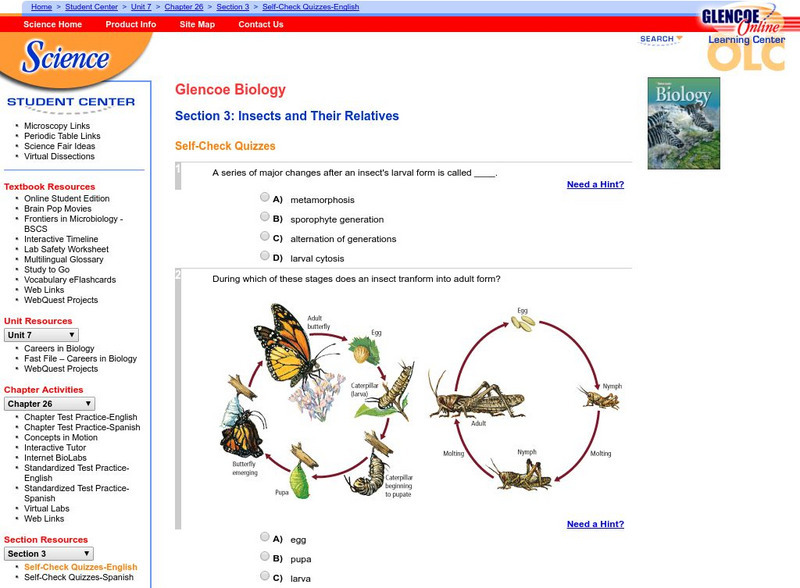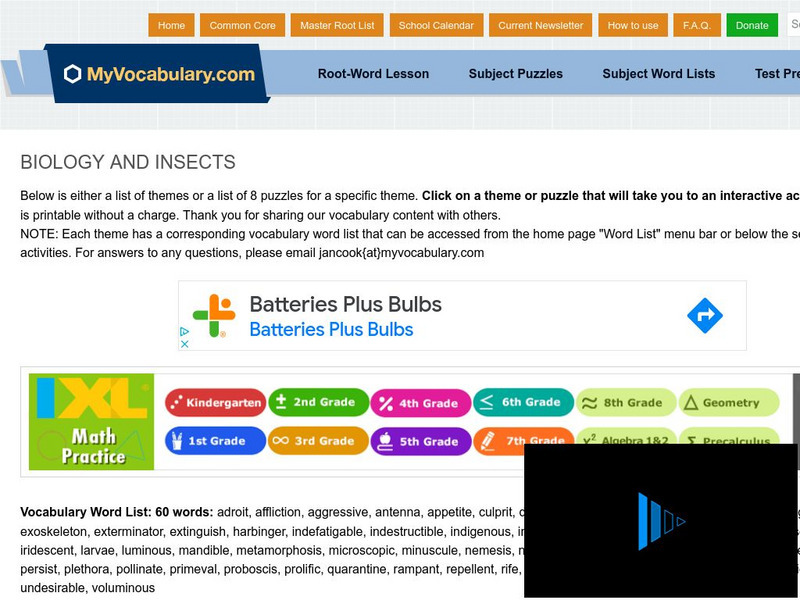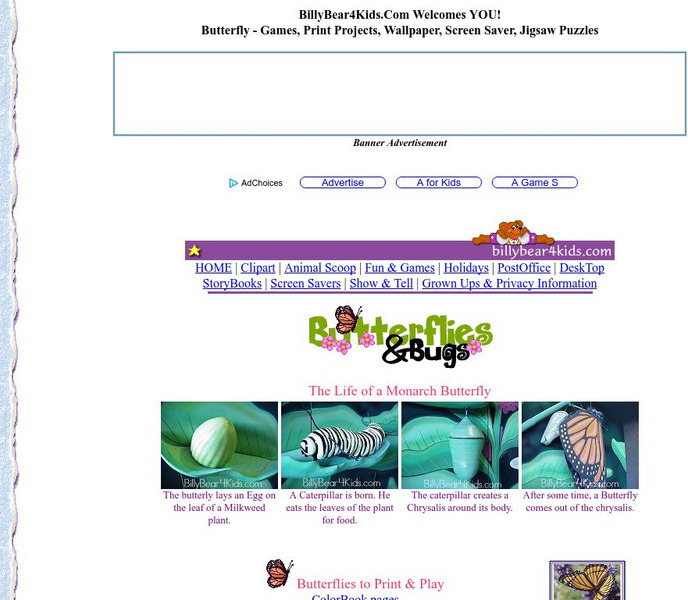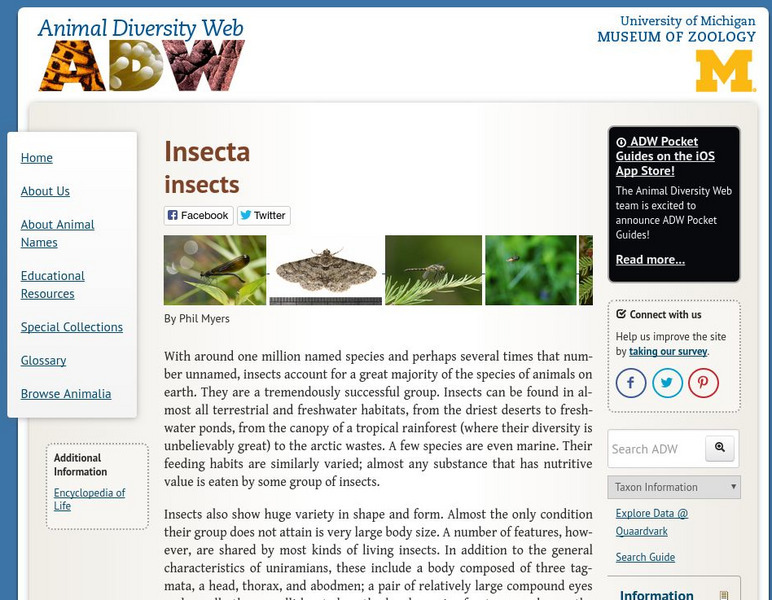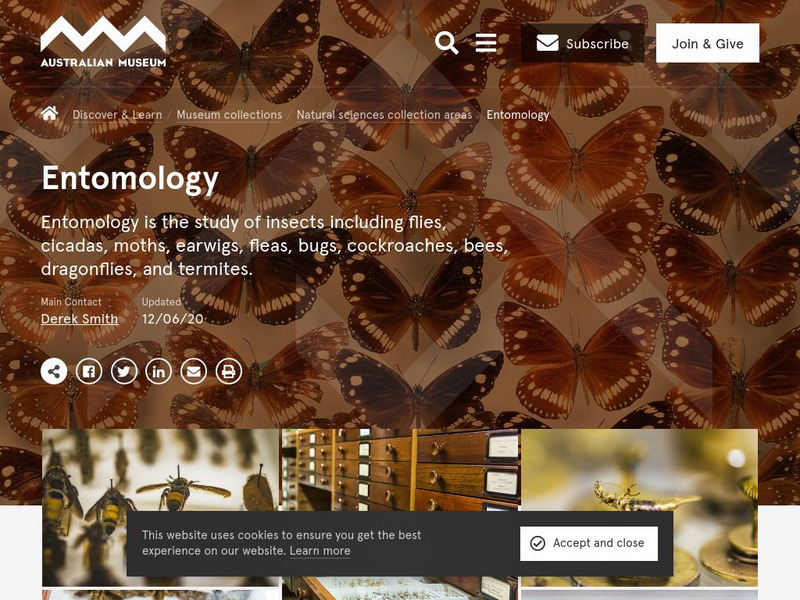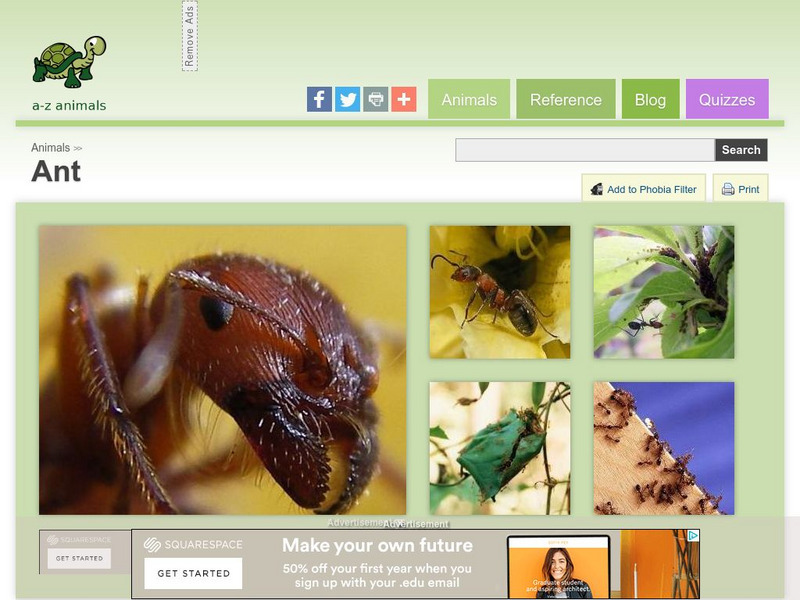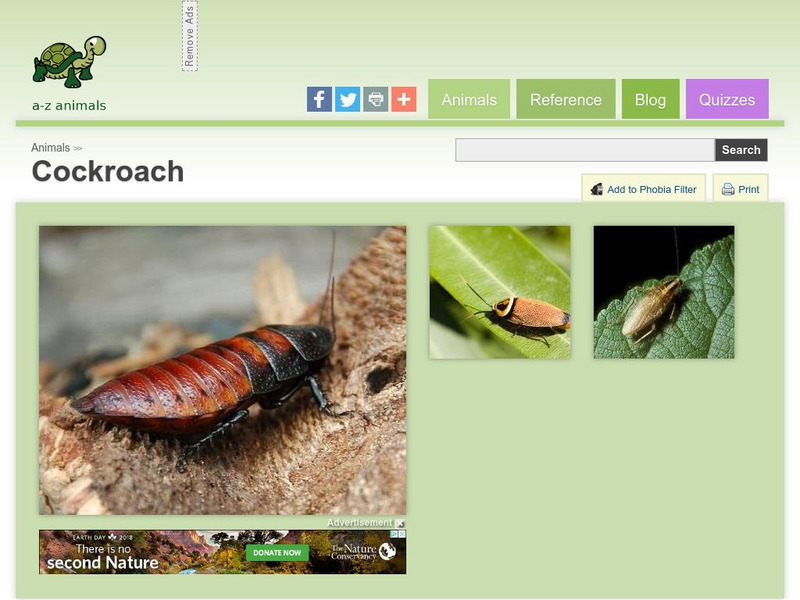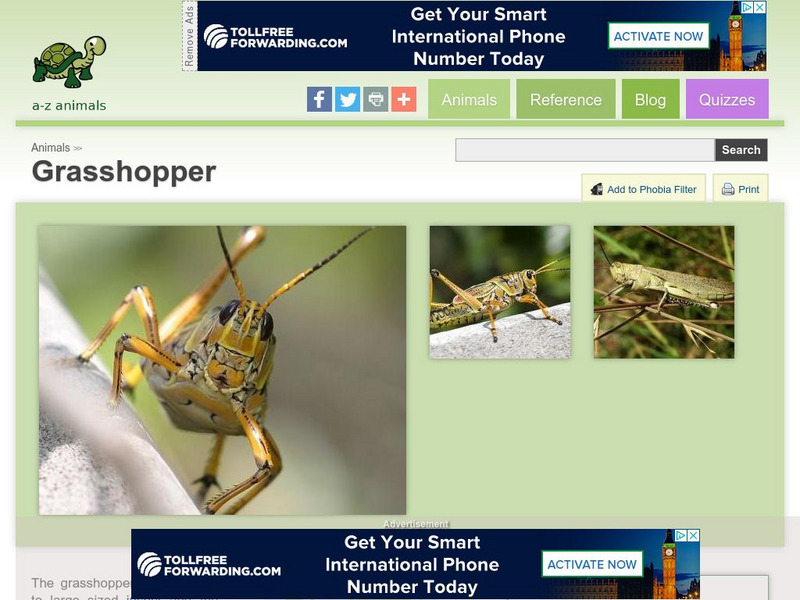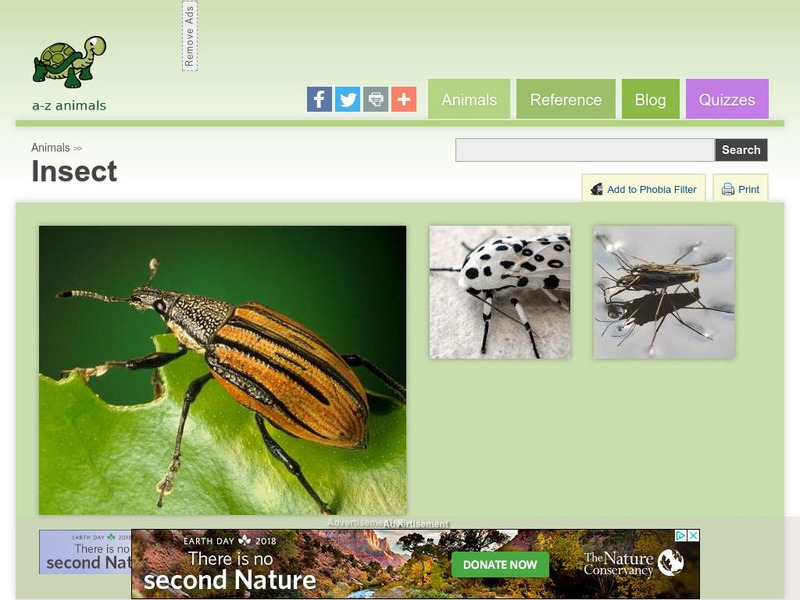Other
Hummingbird Educational Resources: Ladybugs and Insects
This is a resource for any teacher looking for some ideas to use to complement a unit on bugs. Scroll down for songs, center ideas, crafts, science discovery, math ideas, dramatic play ideas and much more!
University of California
Understanding Evolution: Introducing the Arthropods
This extensive look at the arthropod provides enough information for any budding naturalist, but will also be interesting to one casually interested in insects, spiders, and crustaceans. The pictures are outstanding, and the writing is...
John F. Kennedy Center
The Kennedy Center: Arts Edge: Tuneful Bugs and Birds
Arts Edge at the Kennedy Center provides this lesson plan for teachers of ESOL students that integrates music into language arts. Students create their own poetry while listening to music about bugs and birds.
McGraw Hill
Glencoe Biology: Insects and Their Relatives: Self Check Quiz
Five multiple-choice quiz questions covering insects and their relatives. Students have the opportunity to check their answers after submitting their results.
Other
The Antlion Pit: A Doodlebug Anthology
Outlines the physical characteristics of the antlion order, Neuroptera. Identify them by their size, relationships with other animals, and about the antlion's role in certain cultures.
PBS
Pbs Nature Critter Guide: Fly
What do you know about the common housefly? The fly has keen eyesight and can lay up to one hundred eggs at a time. Students will enjoy learning more facts and information when they explore this resource.
Vocabulary University
My vocabulary.com: Biology and Insects
This is a list of 60 words used in a variety of vocabulary puzzles and activities on the theme of Biology and Insects.
Other
California Science Center: Build a Bug! [Pdf]
Build an edible bug with this activity from the California Science Center. Make good choices based on what you learn about the body, wings, and legs.
Other
Billy Bear4 Kids: Butterflies and Bugs
BillyBear4Kids.com is a great butterfly resource with links to butterfly cut-outs, flashcards, bookmarks, crafts, online games, and more. Scroll down for reproducibles.
National Pest Managment Association
Pest World for Kids: The Pest Detectives [Pdf]
A science picture book in which a young girl accompanies her father as he visits homes to look for invading insects and other pests.
Regents of the University of Michigan
Animal Diversity Web: Class Insecta
The Animal Diversity Web surveys the general characteristics of the insect class and features such topics as habitat, anatomy, body systems, reproduction, and development.
Smithsonian Institution
Smithsonian National Zoo: Zoogoer Magazine: Preying Mantids
This article covers a variety of topics related to preying mantids including interesting information and current research.
Pennsylvania State University
College of Agricultural Sciences: Carpenter Ants
A good description of the carpenter ant, its life cycle, and the differences between the carpenter ant and the termite. Find out how the carpenter ant causes damage, and how to control an ant infestation.
Australian Museum
Australian Museum: Entomology
Australian Museum has a massive collection of insects. Read about their "feature insect," along with a stalk-eyed signal fly, a wombat fly, and a phantom phasmid.
Australian Museum
Australian Museum Society: Arthropods
A description of what arthropods actually are and a discussion of their origin, as well as some info on research.
National Pest Managment Association
Pest World for Kids: Bug Builder
Create an ant, a bee, a spider, a cockroach, or a bug of your own design. Use the camera feature to save it to a gallery, and even email it to yourself.
National Pest Managment Association
Pest World for Kids: Sort the Bugs
A fast-paced game where you must eliminate the insects by sorting three types of bugs into jars, hitting flies with a fly swatter, picking ticks up with tweezers, or vacuuming up stink bugs.
A-Z Animals
A Z Animals: Animal Facts: Ant (Formicidae)
Explore images and facts about ants, including details on their appearance, habitat, breeding, diet, behaviour, and much more.
A-Z Animals
A Z Animals: Animal Facts: Beetle (Coleoptera)
Explore images and facts about the Beetle, including details on its appearance, habitat, diet, behaviour, and much more.
A-Z Animals
A Z Animals: Animal Facts: Caterpillar (Larva)
View images and learn facts about Caterpillars, including species variety, appearance, diet, and predators.
A-Z Animals
A Z Animals: Animal Facts: Cockroach (Blattaria)
Explore images and facts about Cockroaches, including details on their appearance, habitat, breeding, diet, behaviour, and much more.
A-Z Animals
A Z Animals: Animal Facts: Dragonfly (Anisoptera)
Provides an overview of the Dragonfly, including their habitat, appearance, behaviour, diet, breeding, and much more. Images of this species and statistics can also be found here.
A-Z Animals
A Z Animals: Animal Facts: Grasshopper (Caelifera)
This entry identifies the defining characteristics of Caelifera, more commonly known as the grasshopper.
A-Z Animals
A Z Animals: Animal Facts: Insect (Insecta)
Explore the world of insects and gain a greater understanding of these invertebrates through statistics and information on their appearance, habitat, behavior, and diet.


